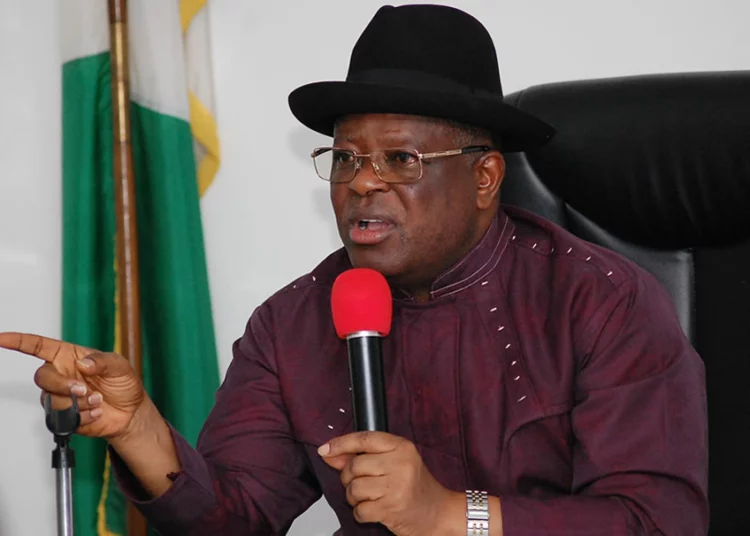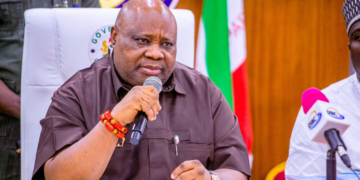The Federal Government has begun talks with several state governors to take over stalled federal road projects across the country in a bid to accelerate completion and reduce pressure on the national budget.
Minister of Works, Dave Umahi, stated this while briefing State House correspondents after Thursday’s Federal Executive Council (FEC) meeting presided over by President Bola Tinubu at the Presidential Villa, Abuja.
Umahi said the Council considered 11 memos from his ministry — nine for reviews of inherited projects and two for new contract awards — as part of the government’s efforts to complete key national road corridors.
He disclosed that over ₦43 billion was approved for the completion of Phase II, Section II of the Lagos–Ibadan Expressway, covering flyovers, underpasses, concrete pavement, ramps, and adjoining roads that were not implemented in earlier phases.
“This project was awarded about five years ago but didn’t take off. When Mr. President came in, FEC terminated the earlier contract. Now, we’ve re-awarded Phase II, Section II for ₦43bn,” Umahi said.
The Council also reviewed the Mushin–NNPC Junction–Apapa–Oshodi Expressway dualisation, initially awarded in 2022 for ₦11bn and now revised to ₦19.09bn due to inflation and rising construction costs. The project covers a 14.4km stretch.
Another major approval was granted for Section III of the 1,068km Sokoto–Badagry Superhighway, covering 162.97km from Badagry through Ogun to the Oyo border, designed as a six-lane reinforced concrete highway at a cost of ₦3.39bn per kilometre.
For the Ilorin–Omu Aran–Egba Road, which measures 206.7km in total, Phase I (31km) was approved at ₦43bn, while the remaining 184.7km will be executed when funding improves.
Similarly, the Enugu–Onitsha Road (OP Junction–Ukehe–Okatu–Abu–Udi–Oji to the Anambra border) was broken into phases. Phase I (35.1km) was approved for ₦28.47bn, with ₦21bn already paid and a ₦7bn balance left to complete the phase.
The East–West Road project, inherited at ₦156bn, was redesigned due to heavy traffic volumes. Umahi said one carriageway has been fully completed and 30% of the second done, while flyovers at Abuloma and Refinery Junctions in Rivers State will be brought forward for award under Phase II by the end of the month.
On the Ota–Idiroko Road, Section I (14km) was revised from ₦43bn to ₦98bn after changing from flexible to rigid pavement and addressing high underground water levels. The 509m flyover section with dual ramps was revised from ₦17bn to ₦23bn.
The Council also approved Phase II of the Wasasa–Turunku–Mararaba Road in Kaduna State (42km) at ₦30.23bn, while Section I (7.8km) had earlier been approved for ₦18bn.
In the South-west, the Ijebu Igbo–Etapa–Owoyen Road spanning 37km across Ogun and Oyo States was re-evaluated from ₦13bn to ₦53bn, with a 7km extension and reinforced concrete pavement.
Umahi attributed most cost reviews to higher material prices, water table challenges, and the shift to rigid pavement. “The cost of reinforcement alone has risen to over ₦1.1 million per ton, so we had to adjust rates to reflect current market realities,” he said.
The minister added that governors in Edo, Delta, Abia, and Rivers States have already assumed funding and execution of several federal road projects within their territories to ease pressure on the federal purse.
“Because of funding constraints, we are phasing projects and engaging willing governors to take over some of these roads. The partnership is helping us deliver faster and ensure every region benefits from renewed investment in infrastructure,” Umahi added.





